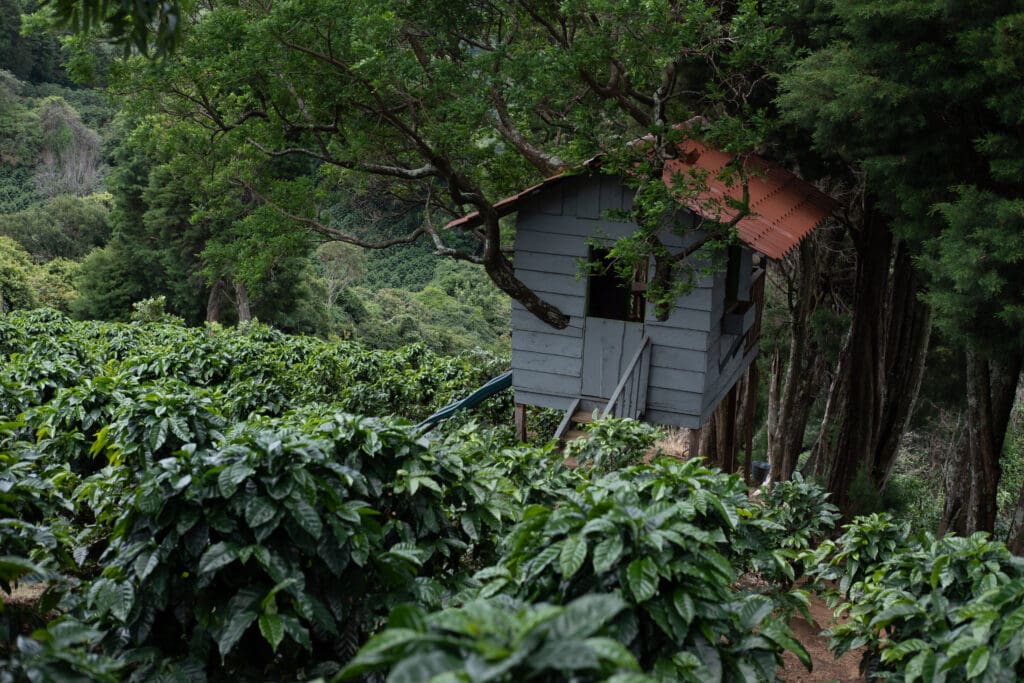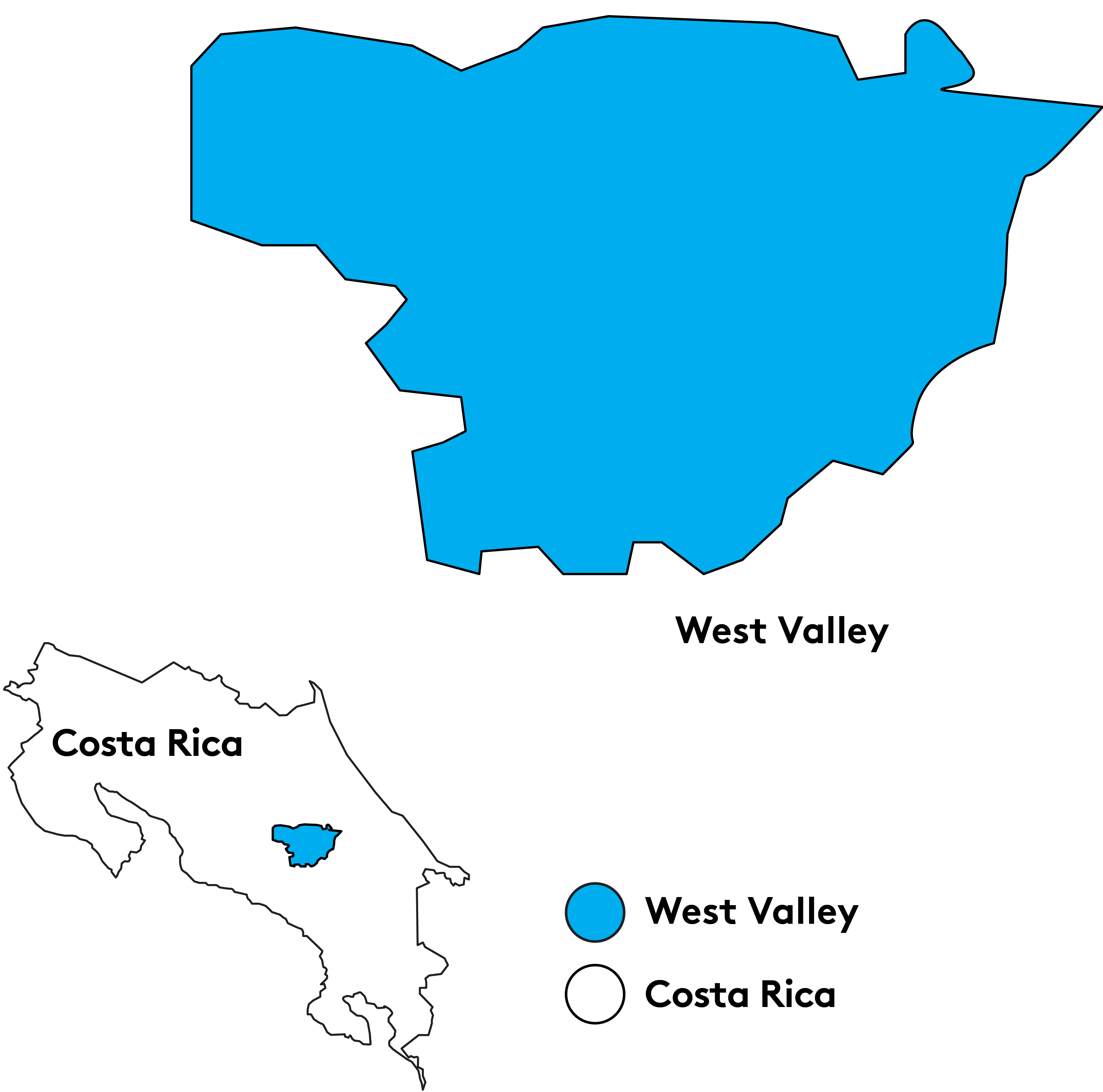Coffee producer Luis Jiménez Padilla comes from a rich family history of coffee production in Costa Rica. His grandparents, Raúl and Angela, both have their own history with coffee, and six of their eleven children, including Luis’ mother María Marta, grew up to own coffee farms. Today, Luis is part of another generation in his family full of a passion for coffee.
Luis’ family purchased La Isla farm and wet mill in 2017. The property is located in Naranjo, Costa Rica, the same city where his grandfather purchased his first farm in the 1930s. The 11 hectare La Isla is named after the mountain on which it’s located, and is described as a “fertile heaven” for coffee production. La Isla, translated to “the island”, is the name given to this area due to its location between two rivers.
The inspiration for the micromill came from another project managed by Luis and María Marta; since the 1980s María Marta has pioneered the microfinance model in Central America and still dedicates herself to this mission, which is now shared by her son Luis. This time shared working with coffee inspired the pair to invest in starting their own project.
The farm is separated into small plots on which they cultivate individual varieties of coffee. Each plot carries its own unique qualities, and Luis has found that by separating and combining different coffees from different plots he’s able to create great results.
A central belief for the family at La Isla is that the environment is their greatest responsibility, and they’re committed to preserving and protecting it. They selected specific coffee varieties that are well suited to the area which has allowed them to reduce their use of herbicides and other agrochemicals. The family has also taken measures to protect water sources and other plants on the farm, planting 1,250 native trees over the recent years to act as shade for coffee plants and provide living fences and windbreaks. This dedication has led to a natural increase in the amount of wildlife in the nearby area, including toucans, butterflies, bees, and mammals.
La Isla’s ecological mill consists of three integrated machines: a DCV3000 Penagos pulper, a sorter, and a Delva ascending demucilager; this combination of equipment is designed to use the least amount of water possible. All coffee is dried on either drying patios or raised beds, avoiding mechanical dryers because of their impact on the environment.
This SL-28 coffee was Red Honey processed immediately after harvest. After being pulped, the coffee was dried slowly on raised beds for three weeks.






